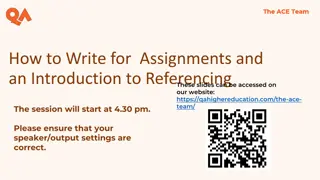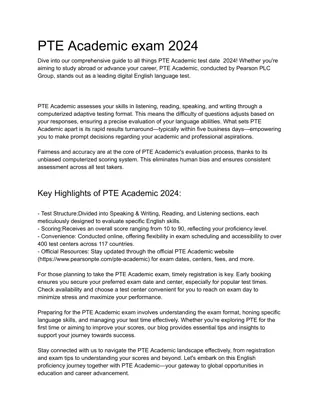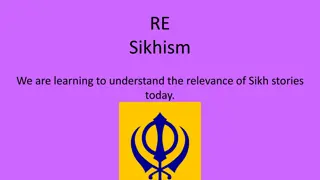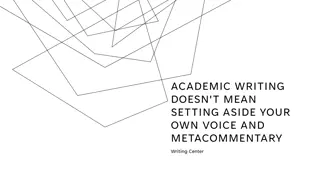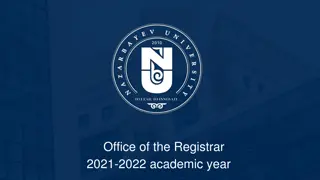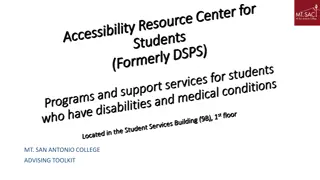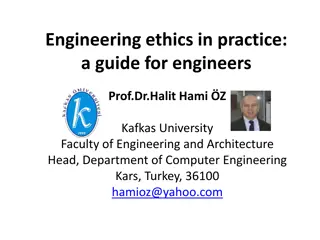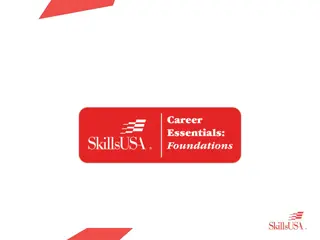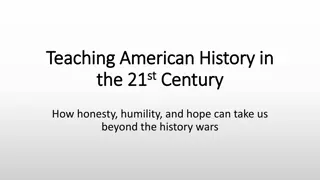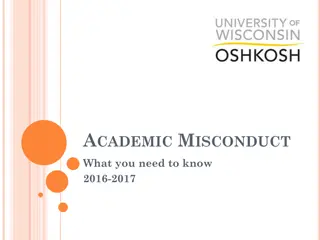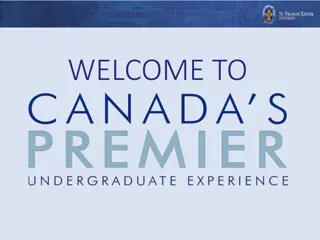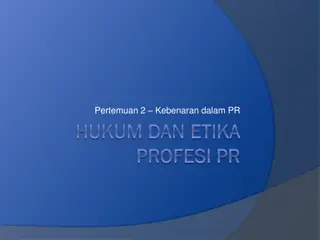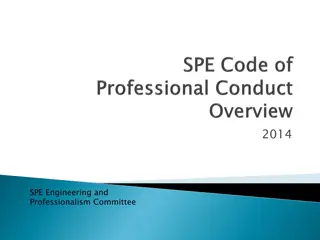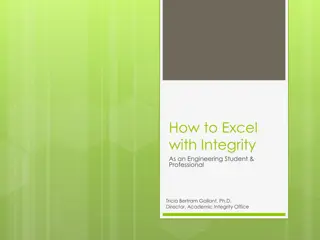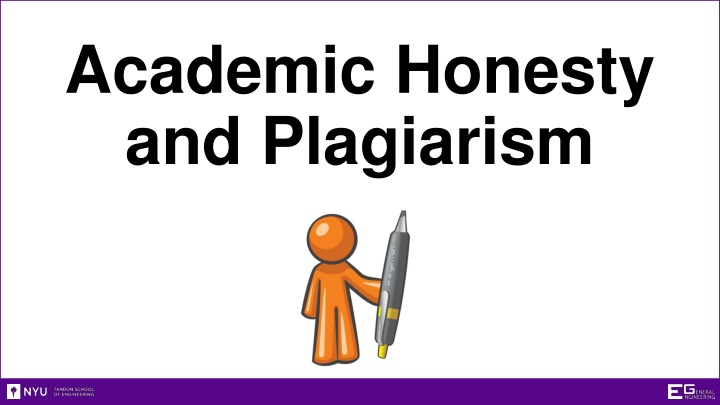
Importance of Academic Integrity and Strategies to Avoid Plagiarism
Understanding the importance of academic honesty and the consequences of plagiarism, this content delves into NYU Tandon's academic honesty policies, professional ethics, and strategies to prevent plagiarism. It emphasizes the severe penalties for dishonesty in academic and professional settings, highlighting the critical need for integrity in engineering education.
Uploaded on | 0 Views
Download Presentation

Please find below an Image/Link to download the presentation.
The content on the website is provided AS IS for your information and personal use only. It may not be sold, licensed, or shared on other websites without obtaining consent from the author. If you encounter any issues during the download, it is possible that the publisher has removed the file from their server.
You are allowed to download the files provided on this website for personal or commercial use, subject to the condition that they are used lawfully. All files are the property of their respective owners.
The content on the website is provided AS IS for your information and personal use only. It may not be sold, licensed, or shared on other websites without obtaining consent from the author.
E N D
Presentation Transcript
Academic Honesty and Plagiarism
Why is this Important? Severe penalties at NYU SOE Zeroes on assignments Failure of courses Reported to student affairs Worse penalties in industry Civil penalties (lawsuits) Criminal penalties End your career
Professional Ethics National Society of Professional Engineers (NSPE) Code of Ethics 1) Hold paramount the safety, health, and welfare of the public. 2) Perform services only in areas of their competence. 3) Issue public statements only in an objective and truthful manner. 4) Act for each employer or client as faithful agents or trustees. 5) Avoid deceptive acts. 6) Conduct themselves honorably, responsibly, ethically, and lawfully so as to enhance the honor, reputation, and usefulness of the profession.
NYU Tandon Academic Honesty Definition: misrepresentation, deception, dishonesty, or any act of falsification to influence academic evaluation 1) Cheating: violating rules during examination 2) Fabrication: falsifying data or citations 3) Plagiarism: failure to attribute credit for borrowed information 4) Unauthorized collaboration: group work on individual projects 5) Duplicating work: using one project for more than one class 6) Forgery: altering any academic document
EG 1003 Plagiarism Policy Software will be used to compare your work with previous students submissions, peer submissions, and other sources The first time you are caught plagiarizing on a lab report or presentation, you will get a zero (both TA and WC grades) The second time, YOU FAIL EG 1003
Strategies to Avoid Plagiarism Due to workload, it is tempting to copy other work Start working early so that time is not a concern for completing assignments You must be willing to put in hard work and effort to be an engineer Avoid asking classmates for assignments Do not search online databases for assignments CITE THE LAB MANUAL AND OTHER SOURCES
Citing Sources Use and cite EG website regularly Full citation in Works Cited or References section New York University Tandon School of Engineering. (2016). Lab 11: Heat Transfer and Thermal Insulation. EG 1003 Online Lab Manual. Accessed 6 January 2016 from manual.eg.poly.edu. In-text citation near the information used (NYU SOE, 2016)
Resources http://ctl.yale.edu/writing/using-sources/understanding- and-avoiding-plagiarism/what-plagiarism http://ctl.yale.edu/writing/using-sources/understanding- and-avoiding-plagiarism/fair-paraphrase
Academic Honesty and Plagiarism QUESTIONS?

